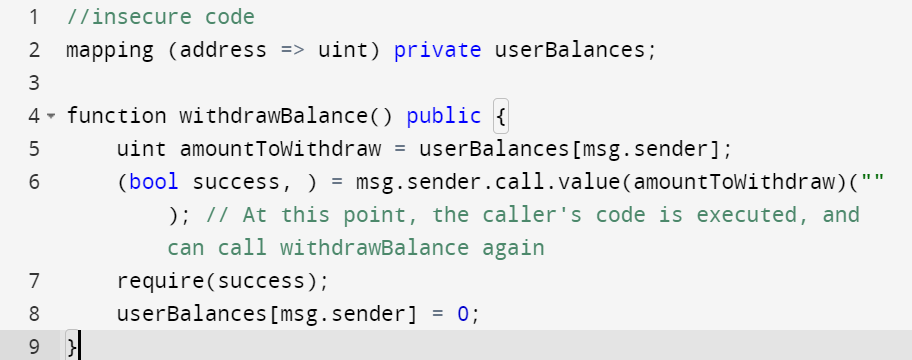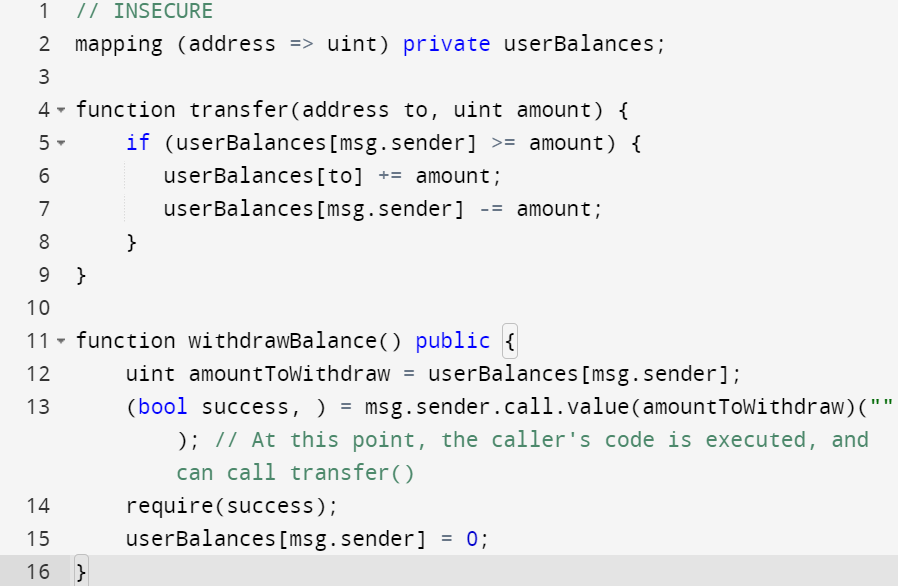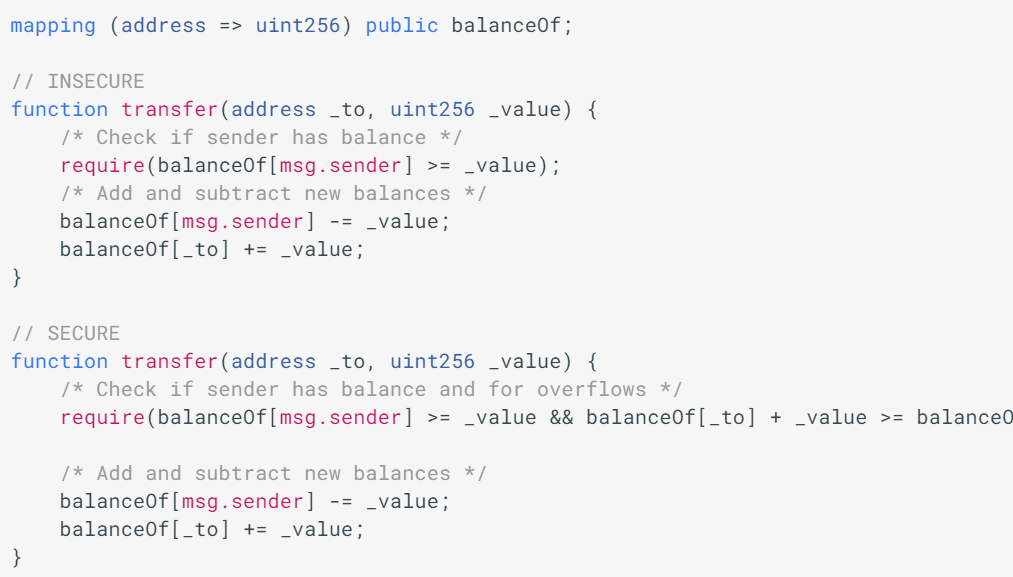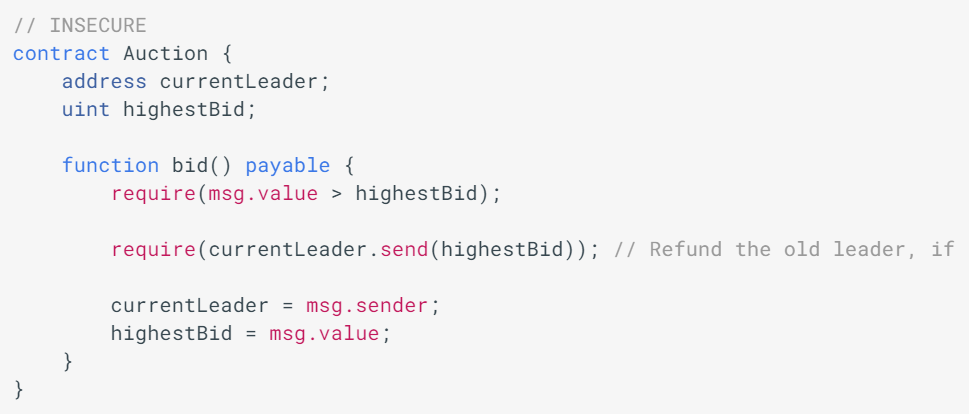One of the major dangers of calling external contracts is that they can take over the control flow, and make changes to your data that the calling function wasn't expecting. This class of bug can take many forms, and both of the major bugs that led to the DAO's collapse were bugs of this sort.

Front-running, coined originally for traditional financial markets, is the race to order the chaos to the winners benefit. In financial markets, the flow of information gave birth to intermediaries that could simply profit by being the first to know and react to some information. These attacks mostly had been within stock market deals and early domain registries, such as whois gateways.

Be aware that the timestamp of the block can be manipulated by the miner, and all direct and indirect uses of the timestamp should be considered.

If attacker bids using a smart contract which has a fallback function that reverts any payment, the attacker can win any auction. When it tries to refund the old leader, it reverts if the refund fails. This means that a malicious bidder can become the leader while making sure that any refunds to their address will always fail. In this way, they can prevent anyone else from calling the bid() function, and stay the leader forever. A recommendation is to set up a pull payment system instead, as described earlier.





